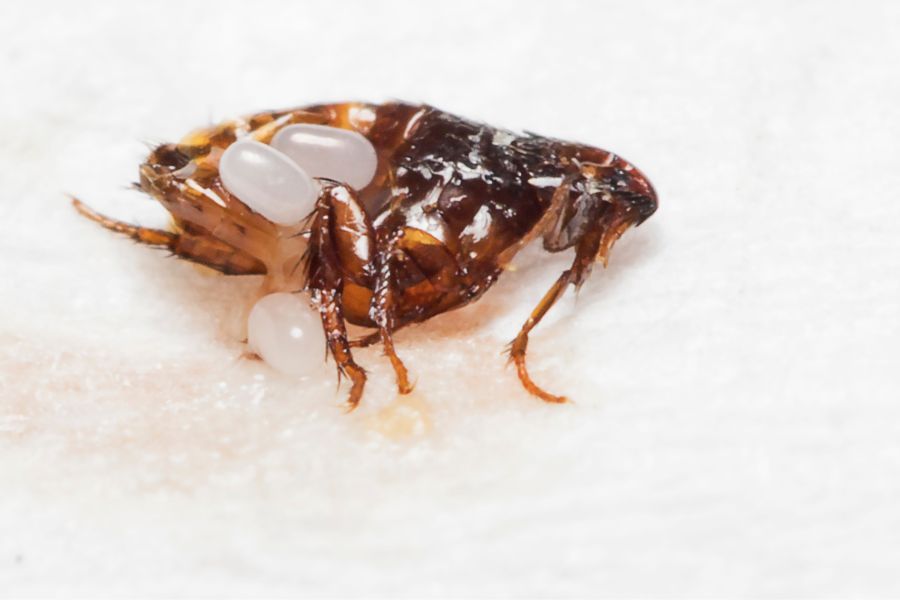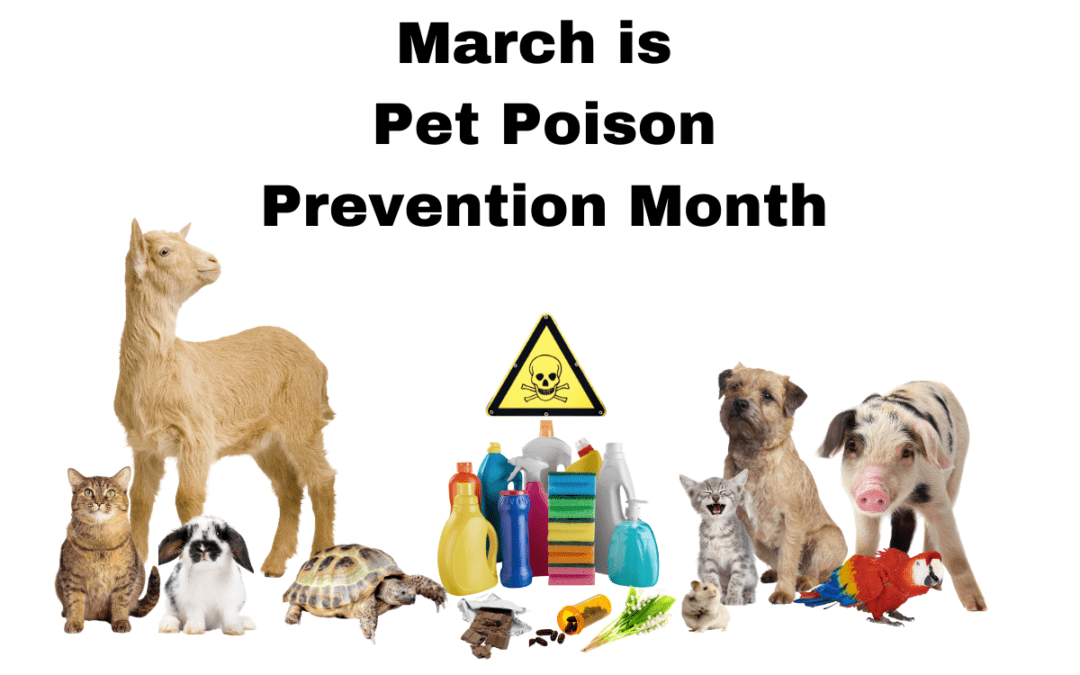Blog
Our news blog

Canine Influenza Virus
Recently, you may have heard about increased cases of Canine Influenza virus. Does your dog socialize at the dog park or visit boarding and grooming facilities? Influenza viruses are most likely to infect dogs that interact with other dogs.
Many veterinary, grooming and boarding facilities are now requiring dogs to be vaccinated against it. The influenza virus can be directly spread from one animal to another via nose-to-nose contact. It can also be acquired through breathing droplets of infected patients or from contacting an infected surface. The onset of clinical signs is quite rapid, and usually occurs in the first few days following infection.
To help keep your dogs protected, we will now be carrying the Canine Influenza Bivalent vaccine. The vaccine is done in a series of 2 vaccines, boosted 3-4 weeks apart. After the second vaccine, it is recommended to be done on a yearly basis.
Please call us for more information and to schedule your dog’s appointment
moreMicrochipping Your Pet
We love it when we see pets reunited with their owners due to pets having a microchip. Because collars with tags can sometimes break, fall off, or info on the tag becomes illegible, we recommend also microchipping your pets. If your pet is found and brought into our office, a shelter, or another pet organization, they will be scanned. If your pet is chipped and the chip is registered, we will be able to call the chip company and retrieve your information. We can then call you and get you reunited right away. We recommend updating your information on your pet’s microchip yearly to ensure new phone numbers, addresses, etc., are current. Most microchips are universal, so they can be traced all over the United States and Europe. It is the only truly permanent method of pet identification. It is placed like a vaccine in between the shoulder blades, and it is quick and painless. The microchip will last a lifetime, and it is one of the best chances for your pet to be returned to you if found. We help register your pet’s microchip on the same day it was placed. Call us for further information.
more5 Fall Pet Tips
#1: Beware of the wind!
Pets can accidentally get out through doors and gates that have been pushed open by heavy winds. These winds can also knock down yard decor, which can break and hurt your pet’s paws if they step on it. Debris flying in the air could also land on your pets, and smaller debris could even cause eye injury. We recommend keeping your pets indoors or in a secure area when it is windy. In Southern California, winds can also create fire hazards. If you live in an area where this can be a problem, ensure to have an evacuation plan for you and your pets.
#2: Don’t forget to update your pet’s I.D. tags and microchip information.
Sometimes tags can fade making it hard to read. Replacing these tags yearly not only ensures they are clear it also gives you the chance to update any changes to your phone number etc. Don’t forget to also update your pet’s microchip information. If you have moved, you want to add an additional person to the account, etc.
#3: Beware of fleas and ticks.
It is flea and tick season in Southern California. Your pet can easily pick these up while on walks, hikes, or if they roll around on the autumn leaves. Ensure your pet is on a yearly flea and tick preventative to help protect them from bites and infectious disease fleas and ticks can carry.
moreHeartworm Awareness
April is Heartworm Awareness Month.
Heartworm is a very serious disease that can be fatal. Many animals can be infected including dogs and cats. It is caused by worms (heartworms) that can live in the animal’s heart and lungs. They are transmitted by the bites of infected mosquitoes.
Mosquitoes can travel long distances biting and infecting animals on their way. It only takes one bite from a mosquito to transmit heartworm infection. Mosquitoes can bite through your pet’s fur and thick skin. Keeping your pets indoors will also not protect them as many mosquitoes will make their way into your home as the doors open and close. Some of them may even be small enough to fit through your screens.
Female mosquitoes must feed on blood several times in order to lay eggs. Each one can lay several hundred eggs. Eliminate mosquito breeding grounds by emptying and washing outdoor water bowls daily, empty baby pools, buckets, and bird baths when not in use. Resolve any landscaping areas where water from sprinklers or rain can pool. Do not forget to clear out any sitting water in the house also including water from indoor plants.
Yearly heartworm testing is recommended and can be done in clinic with a simple blood test. Heartworm preventatives should be given Immediately after receiving negative results. There are many topical and oral preventatives that should be given once a month. Never skip a day and if you do, we recommend to retest. Though there are expenses associated with the testing and prevention, they really do out weight the costs associated with the treatment of a heartworm positive pet.
moreFlea Eggs: Spring Into Action Before Flea Eggs Do!
Did you know that fleas can lay up to 50 eggs a day? Flea eggs are very hard to see, especially when in your pet’s environment. Flea eggs can also be very sticky, so they tend to stick to fibers like carpet and bedding. A female flea will lay eggs 24-36 hours after she has had her 1st blood meal. Over 50% of fleas will feed on your pet about 5 minutes after they have jumped on them, and 100% of them will be full of blood after an hour of being on your pet.
Temperature and humidity have a lot to do with how quickly a flea egg will hatch. In humid and hot temperatures, about 50% of the flea eggs may hatch in about 36 hours. In cooler temperatures, flea eggs will take days to hatch. Many flea eggs can lay dormant for weeks to months. As soon as the hot, humid weather arrives, the hatching will increase. In areas like Southern California, it is recommended to do year-round flea preventative since the weather tends to be perfect for fleas and their eggs. Once hatched, many fleas in humid weather may live without a host for about 2 months.
Most pet owners wait until they see their pet scratching before they treat their pet with a flea preventative. By this time, there may already be hundreds of flea eggs in the environment. Fleas and their eggs can get into your pet’s environment without you even realizing it until it is too late. Stray cats or wild animals can drop them in your yard, and your pet can also pick them up on walks, dog parks, and more.
moreMarch is Pet Poison Prevention Month
Knowing what potential poisons may be in your pet’s environment is the first step in keeping your pet safe. March is Poison Prevention Month, and we have compiled a list of some of the top hazards and toxins you should keep out of reach of your pets.
- Over-the-counter medications and human prescription medications
- Veterinary medications: Chewable medications are very appealing to pets. It is important to follow label instructions and store medications out of reach of pets.
- Insecticides: Not following the directions on the label can be very dangerous for pets.
- Lawn and garden products: It is important to store these products out of reach of pets.
- Rodenticides: These are designed to kill mice and rats and can be just as toxic to your pets.
- Indoor and outdoor plants: Be sure you are aware of the plants you have in your pet’s environment before putting them around the inside or outside of your house. Lilies, if ingested even a small amount, can be toxic to cats leading to kidney failure. Other toxic plants include Lily of the Valley, Azaleas, and Rhododendrons.
- Household items: The most common items for this category include paint, cleaning products, and fire logs.
- Chocolate: The darker the chocolate, the more dangerous it can be. Theobromine; the compound found in chocolate. This is a stimulant comparable to a “caffeine high” for people. For cats, dogs, and most animals, it is toxic, causing vomiting and diarrhea. If ingested in large amounts, it can cause rapid heart rate, irregular heart rhythm, and seizures.
- Human foods: Do not let your pets ingest onions, raisins, grapes, garlic, alcohol, and xylitol. Xylitol is a natural, sugar-free sweetener found in many foods like pudding, gelatin, and in gum, toothpaste, and oral rinses for humans. Keep your pets away from these items.
Are Hairballs Really Normal for Cats?
Part of cat ownership involves coming across furry, slimy tubes, otherwise known as hairballs. Depending on your cat’s hair coat length, you may encounter hairballs with such regular frequency that you become worried about your feline friend’s health. Let’s take a closer look at how hairballs are formed, how they’re eliminated, and how many are considered normal for your cat.
How are hairballs formed?
As cats groom themselves, the tiny hooks on their tongues trap dead or loose fur that they ingest. Whether your cat is long- or short-haired, they will still ingest enough fur to create hairballs. Most of the hair passes easily through the gastrointestinal tract, but some can become clumped in the stomach and, in rare cases, become too bulky to be passed. These uncommon instances require surgical removal.
How does my cat get rid of their hairballs?
In most cases, your cat will vomit up the hairball, which will pass from their stomach to the esophagus, and then flatten out into a thin tube, rather than an actual ball, as it goes through the esophagus. So, no, cats do not cough up hairballs—they vomit them.
How many hairballs should my cat normally produce?
more3 Reasons Why Your Dog Licks Their Paws
Does your dog’s slurping sound as they lick their paws always keep you awake? Many pet owners become frustrated by the non-stop paw-licking and want to help their dogs overcome this condition. Before busting out the socks or the cone of shame for your pooch, discover the underlying cause, so you can treat and completely cure the problem. Following are three of the most common reasons your dog may be licking their paws.
#1: Your dog has allergies
Environmental allergies frequently affect dogs, and one of the most common signs is itchy, inflamed skin, especially in the ears and on the paws. Dogs with allergies to molds and pollens routinely lick their paws after a stroll in the grass, particularly in the spring and summer. Remove the allergens from your pet’s paws with unscented baby wipes or waterless shampoo, or make a tea bath from a plain Lipton tea bag whose tannins will draw out the inflammation and allergens.
#2: Your dog has a behavior disorder
Boredom, anxiety, and stress can cause your pup to lick their paws obsessively. They may have a favorite paw but will often lick at both front paws, and sometimes their back feet, for entertainment or to help them relax. Paw licking associated with anxiety is typically seen at night when the family is unwinding for the day. You’ll notice your nervous pooch licking their paws while you watch TV or read in bed.
more







